

- This event has passed.
CVBT 2025 Annual Conference
September 12, 2025 @ 8:00 am – September 14, 2025 @ 2:00 pm
Battle of Spotsylvania Courthouse
Grant’s Second Battle of the Overland Campaign

September 12-14, 2025
Tickets Going Quickly!
(Silent Auction/Raffles all Evening)
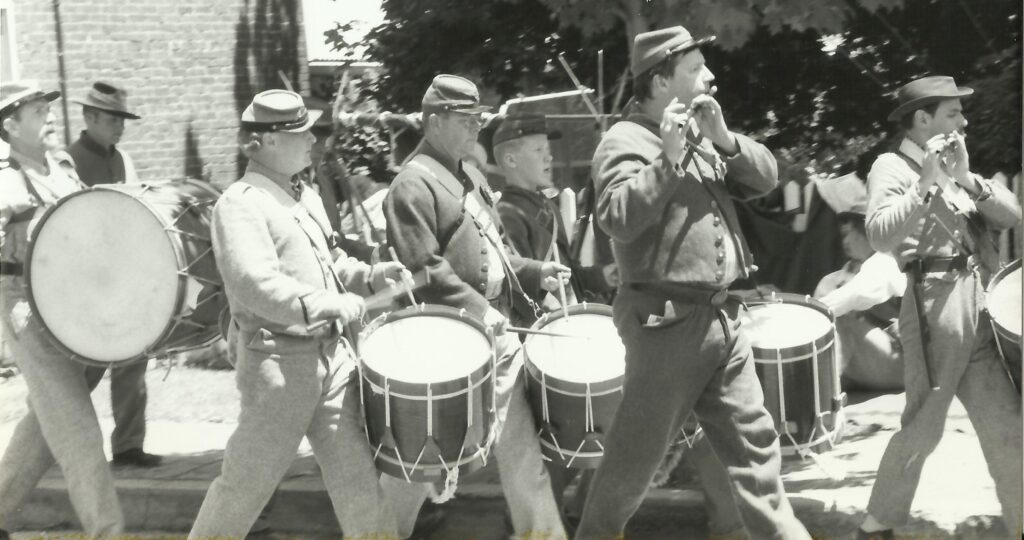
Civil War era music provided by the Second Maryland Fifes and Drums. The fife was used because of its high pitched sound and the drum because of its low pitched sound. Both instruments can be heard from great distances and even through the sounds of a battlefield.
Register Today!
ABOUT SPOTSYLVANIA
It is difficult to imagine a time more drenched in blood, a place more stubbornly defended, or a contest more emblematic of the Civil War’s grim attrition than the Battle of Spotsylvania Court House. Fought from May 8 to May 21, 1864, this engagement between General Ulysses S. Grant’s Union Army of the Potomac and General Robert E. Lee’s Confederate Army of Northern Virginia became known as “A Season of Slaughter.” The battle served as a harrowing chapter in the Overland Campaign, a relentless struggle for supremacy in the heart of Virginia, where strategy, endurance, and sacrifice wrote the story in crimson lines upon the land.
The Battle of Spotsylvania Court House was the second engagement in the Overland Campaign. Grant’s objective was to pursue Lee, weaken his forces, and ultimately capture Richmond, instructing Meade to follow Lee’s movements diligently.
At Spotsylvania, the combined forces of both the Union and Confederate armies numbered 152,000 combatants. The Union outnumbered the Rebels nearly two to one. When it was all over the estimated casualty figure numbered over 31,000, 18,399 Union and 12,687 Confederates.
Despite significant Union casualties, the Overland Campaign represented a strategic victory for Grant. The battles resulted in higher proportional losses for Lee’s army, eventually leading to the siege of Petersburg and Lee’s surrender at Appomattox in April 1865.
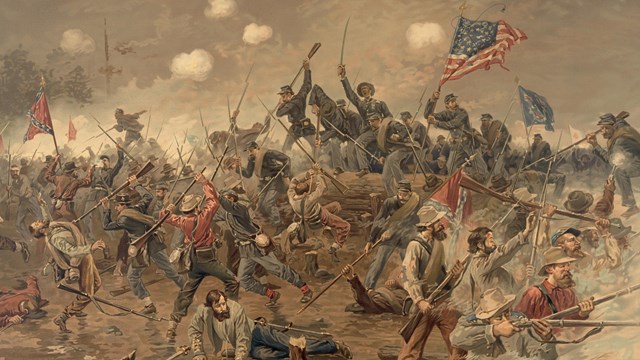

Conference to be held at the Jepson Alumni Executive Center’s Grand Ball Room
1119 Hanover Street, Fredericksburg, VA 22401
The Jepson Alumni Executive Center is located at the top of Trench Hill in historic Fredericksburg, Virginia. Built as a private home in the 1920s and acquired by the University in 1948, Trench Hill is named to commemorate the Civil War trenches found on the property
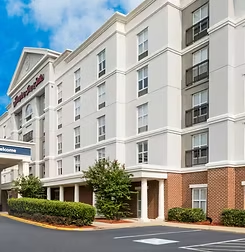
CVBT Accommodations
A block of rooms has been reserved for CVBT guests at the Hampton Inn and Suites by Hilton Fredericksburg – at Celebrate Virginia

Reserve a Room
To reserve a room please click the reservation link below. Rooms fill up fast so get your accommodations set today!
Special Entertainment by Members of the Second Maryland Fifes and Drums!

More Great Speakers & Programs
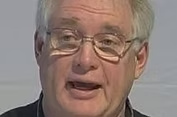


Ken Noe – Brian Steel Willis – Chris Mackowski
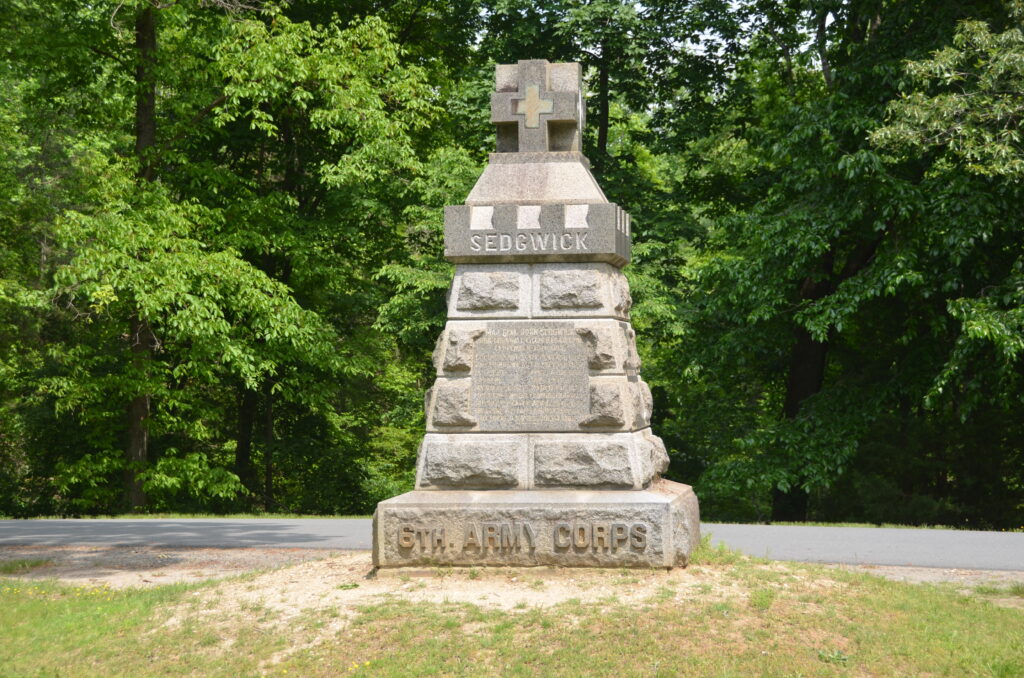
CVBT 2025 Annual Conference Event Schedule
Thursday September 11, 2025
“CVBT Generals Only” Special invitation Battlefield Program and Lunch
Friday September 12, 2025
1/2 Day Tour – Massaponax Church/Armies March to North Anna
Guide: Chris Mackowski
Massaponax Church, a simple brick building in the Classical Revival style, was completed in 1859. It was the second church for a congregation founded in 1788. The area around the church changed hands several times during the Civil War, and the building was used by both Union and Confederate armies as a headquarters. Photographs taken from the windows of church balcony, show Grant and his officers meeting in the courtyard, on pews dragged outside from the church. Chris will also discuss the movement of the armies as they marched toward North Anna.
Depart CVBT Office 9:00am – bus tour
1:00 pm Conclude half day tour – return to CVBT office
Saturday September 13, 2025
Tour: Battle of Spotsylvania Court House
Guide: Chris Mackowski
Depart CVBT Office 9:00am – bus tour
Lunch 12:00 (Provided)
Conclude 2nd half of tour
Return to CVBT Office 4:00pm
The Battle of Spotsylvania Court House did not emerge in isolation. It was the direct sequel to the ferocious fighting in the Wilderness, where, beginning on May 5, Grant’s forces had squared off against Lee’s veterans in tangled undergrowth that negated the North’s advantage in numbers. Refusing to retreat after the bloody stalemate, Grant instead moved his army southeast, seeking open ground and a chance to outflank Lee. Lee, ever the tenacious adversary, anticipated the move.Well-known expert, historian, TV personality, and co-author of “A Season of Slaughter” The Battle of Spotsylvania Court House, as well as many other titles, Dr. Chris Mackowski will take us on a tour of sites on the Spotsylvania battlefield, including Todd’s Tavern, Spindle Field, Upton’s Assault, Lee’s Last Line, and CVBT- preserved Harris Farm, among others. Chris will tell the battles story as only he can!
Saturday Evening September 13 ,2025
CVBT Banquet/Meeting and Keynote Speaker
Civil War era music provided by the Second Maryland Fifes and Drums.
Social Hour begins: 6:00pm
Dinner 6:45pm
Introduction and meeting 7:30pm CVBT
President Tom Van Winkle
Keynote Speaker: Dr. Ken Noe 8:00pm
(Silent Auction/Raffle all evening)
Few events in American history have been scrutinized as deeply as the Civil War. Battles, generals, political motives, and the tragic toll have all been exhaustively chronicled. Yet, a force as old as time itself—weather—has often hovered just at the margins of the epic story. In The Howling Storm: Weather, Climate, and the American Civil War, historian Kenneth W. Noe masterfully re-centers the narrative, revealing how weather and climate shaped military strategies, civilian experiences, agriculture, morale, and ultimately the war’s very outcome.
Sunday Morning Breakfast & Program – September 14 ,2025
Stevenson Ridge\Doors open 8:30 am
Breakfast Buffet Served 9:00 am
Introductions / Acknowledgements
President Tom Van Winkle
Morning Keynote Speaker
Brian Steel Wills
When one recalls the American Civil War, images of smoky battlefields, marching armies, and the thunder of cannon fire typically spring to mind. Yet, beneath the glory and horror of combat lies a quieter, grimmer narrative—one that historian Brian Steel Wills masterfully brings to light in his book, Inglorious Passages: Noncombat Deaths in the American Civil War. In lectures, interviews, and presentations, Wills provides a compelling, deeply human account of the countless soldiers whose lives ended not in the fury of battle, but in moments of misfortune, illness, or accident. His work reminds us that the true cost of war is far greater, and far more tragic, than casualty statistics might suggest.
Weekend Concludes
Programs, Speakers & Tours

Chris Mackowski, Ph.D.,
Chris Mackowski, Ph.D., is the editor-in-chief and co-founder of Emerging Civil War and the series editor of the award-winning Emerging Civil War Series, published by Savas Beatie. Chris is a writing professor in the Jandoli School of Communication at St. Bonaventure University in Allegany, NY, where he also serves as associate dean for undergraduate programs. Chris is also historian-in-residence at Stevenson Ridge, a historic property on the Spotsylvania battlefield in central Virginia. He has worked as a historian for the National Park Service at Fredericksburg & Spotsylvania National Military Park, where he gives tours at four major Civil War battlefields (Fredericksburg, Chancellorsville, Wilderness, and Spotsylvania), as well as at the building where Stonewall Jackson died.
Chris has authored or co-authored nearly two dozen books and edited a half-dozen essay collections on the Civil War, and his articles have appeared in all the major Civil War magazines. Chris serves on the board of directors for the Central Virginia Battlefields Trust and on the advisory board of the Civil War Roundtable Congress and the Brunswick (NC) Civil
War Roundtable—the largest in the country. He is also a member of the Antietam Institute and the U. S. Grant Homestead Association. In 2023, he was honored with the Houston Civil War Round Table’s Frank Vandiver Award and also selected as the Copie Hill Fellow at the American Battlefield Trust.
Friday – 1/2 Day Tour – Massaponax Church/Armies March to North Anna
Massaponax Church, a simple brick building in the Classical Revial style, was completed in 1859. It was the second church for a congregation founded in 1788. The area around the church changed hands several times during the Civil War, and the building was used by both Union and Confederate armies as a headquarters, as well as a stable and a hospital. General Grant stopped at the church on May 21, 1864, an event captured in a series of photographs by Timothy O’Sullivan. Two photographs show the church and its yard; the other three, taken from the windows of church balcony, show Grant and his officers meeting in the courtyard, on pews dragged outside from the church. Chris will also discuss the movement of the armies as they marched toward the North Anna.
Graffiti uncovered in the balcony during renovations in 1938 is preserved under plexiglass. An unusual amount of this graffiti is writing, rather than signatures, and includes at least one exchange between Union and Confederate writers.
Saturday full Day Program Subject
Tour – Battle of Spotsylvania Court House – Including Todd’s Tavern, Spindle Field, Upton’s Assault, Lee’s Last Line, and CVBT-preserved Harris Farm, among others.

Kenneth Noe is a native of Virginia, born in Richmond to a graduate of Mary Washington, and is himself a graduate of Emory and Henry College. He earned master’s degrees in history at both Virginia Tech and the University of Kentucky, and he received his doctorate from the University of Illinois. After teaching at the University of West Georgia for ten years, Dr. Noe taught at Auburn University from 2000 to 2021 before retiring.
Dr. Noe has received numerous teaching awards. He is the author of eight books, including The Howling Storm: Weather, Climate, and the American Civil War, published by LSU Press in 2020, a finalist for the Lincoln Prize and the co winner of the Col. Richard W. Ulbrich memorial Book Award. Twice a Pulitzer Prize entrant, Dr. Noe received the 2002 Peter Seaborg Award for Civil War History for Perryville: This Grand Havoc of Battle, and the 1997 Tennessee History Book Award for A Southern Boy in Blue: The Memoirs of Marcus Woodcock, 9th Kentucky Infantry, U.S. His next book, a spin-off of The Howling Storm entitled Abraham Lincoln and the Heroic Legend, will appear early in 2026 from LSU Press.
Program Subject
Traditional histories of the Civil War describe the conflict as a war between North and South. Kenneth W. Noe suggests it should instead be understood as a war between the North, the South, and the weather. Noe will retell the history of the conflict with a focus on the ways in which weather and climate shaped the outcomes of battles and campaigns, with special attention given to the battlefields that the CVBT helps preserve. Climate conditions during the war proved unusual, as irregular phenomena such as El Niño, La Niña, and similar oscillations in the Atlantic Ocean disrupted weather patterns across southern states. He further contends that events such as floods and droughts affecting the Confederate home front constricted soldiers’ food supply (especially in Virginia), lowered morale, and undercut the Confederate government’s efforts to boost nationalist sentiment. Taking into account these meteorological events, Noe rethinks conventional explanations of battlefield victories and losses, compelling historians to reconsider long-held conclusions about the war.

Brian Steel Wills is the retired Director of the Center for the Study of the Civil War Era and Professor Emeritus of History at Kennesaw State University in Kennesaw, Ga. Dr. Wills has been a member of the Georgia Civil War Commission and past President of the Atlanta Civil War Round Table. His latest publication, Running the Race: The “Public Face” of Charlton Heston, was published by Savas-Beatie in 2022.
He is also the author of numerous works relating to the American Civil War. Inglorious Passages: Noncombat Deaths in the American Civil War (Kansas, 2017) and George Henry Thomas: As True as Steel (Kansas, 2012), each received the Richard Barksdale Harwell Award winner as the best book on a Civil War topic for that year presented by the Atlanta Civil War Round Table.
His biography of Confederate General Nathan Bedford Forrest, A Battle From the Start: The Life of Nathan Bedford Forrest (Harper Collins) is currently in reprint as The Confederacy’s Greatest Cavalryman: Nathan Bedford Forrest (Kansas). This work was chosen as both a History Book Club selection and a Book of the Month Club selection.
His other titles include The River was Dyed with Blood: Nathan Bedford Forrest and Fort Pillow (Oklahoma, 2014); Confederate General William Dorsey Pender: The Hope of Glory (Louisiana State University, 2013); Gone with the Glory: The Civil War in Cinema (Rowman and Littlefield, 2006); The War Hits Home: The Civil War in Southeastern Virginia, (Virginia, 2001) and an updated edition of the James I. “Bud” Robertson, Jr., Civil War Sites in Virginia (Virginia, 2011).
In 2000, Dr. Wills received the Outstanding Faculty Award from the Commonwealth of Virginia, one of eleven recipients from all faculty members at public and private institutions across the state. He has also received the Charles L. Dufour Award from the Civil War Round Table of New Orleans in 2013 and the recipient of the Frank E. Vandiver Award of Merit in 2020 by the Houston Civil War Round Table.
Program Subject
Inglorious Passages: Noncombat Deaths in the Civil War
Every conflict has a cost to the soldiers engaged in them. Casualties of all kinds have occurred amidst the broad spectrum of battle. Yet, as terrible as these were for those who suffered them or for their loved ones, fatalities associated with noncombat instances were just as harrowing. Thus, it was during the American Civil War that the toll of war exacted on soldiers and civilians included the diverse elements that ranged from disease and weather to accidents and human failures. Train wrecks, boiler explosions, and industrial accidents were among the most likely culprits to grab headlines, but the routine business of riding, marching, fatigue duty, and camp life could spell disaster. Even the innocent activities of bathing could end in catastrophic results. Fights or quarrels among comrades could escalate and turn deadly. Foolish disregard for safety, the heinous acts of murder, the dismal finality of suicide, or the incompetence of those instructed with the health of the men in uniform, all added to the grim tally of war. Survivors understood the terrible price of these sacrifices and lamented the losses that came from such inglorious passages from life to the hereafter.
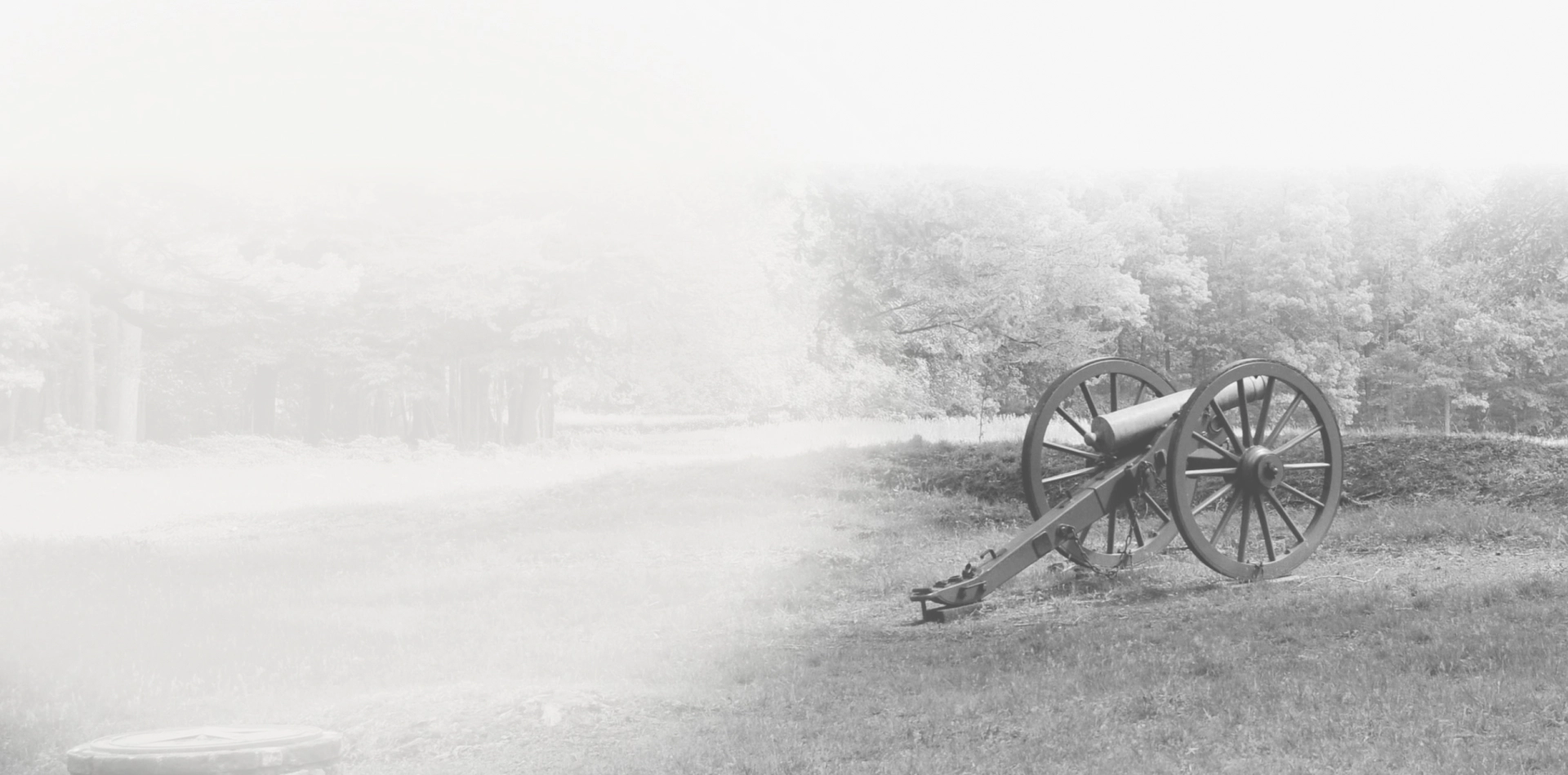
NEWSLETTER SIGN-UP
Join our community! Sign up for our newsletter to receive exclusive updates, event information, and preservation news directly to your inbox.